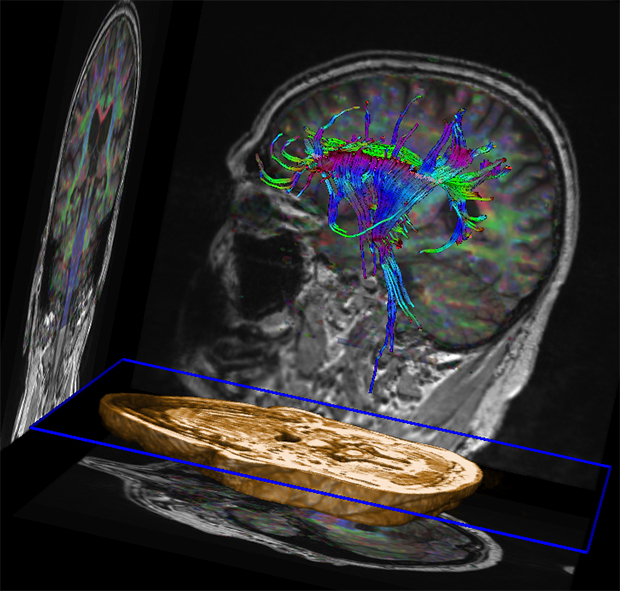Results of Study Published Evaluating Treatment in Patients with Dementia-Related Psychosis
 The New England Journal of Medicine published results from the Phase 3 HARMONY study, stopped early for efficacy, demonstrating that patients with dementia-related psychosis who responded to pimavanserin (Acadia Pharmaceuticals Inc.) had a lower risk of relapse with continuation of the drug than with discontinuation. The study included patients across five subgroups of dementia: Alzheimer’s disease, dementia with Lewy bodies, frontotemporal dementia, Parkinson’s disease dementia, and vascular dementia.
The New England Journal of Medicine published results from the Phase 3 HARMONY study, stopped early for efficacy, demonstrating that patients with dementia-related psychosis who responded to pimavanserin (Acadia Pharmaceuticals Inc.) had a lower risk of relapse with continuation of the drug than with discontinuation. The study included patients across five subgroups of dementia: Alzheimer’s disease, dementia with Lewy bodies, frontotemporal dementia, Parkinson’s disease dementia, and vascular dementia.
The HARMONY study was stopped early due to positive efficacy at the pre-planned interim analysis upon recommendation of the trial’s independent data safety monitoring board. HARMONY met its primary endpoint by significantly reducing the risk of relapse of psychosis by 2.8 fold compared to placebo in the double-blind period (hazard ratio (HR)=0.35, two-sided p=0.005; one-sided p=0.0023). The study also met its secondary endpoint by significantly reducing the time to trial discontinuation for any reason
(HR=0.45, two-sided p=0.005; one-sided p=0.0024). The data from the HARMONY study demonstrates that patients with DRP who had responded to pimavanserin had a significantly lower risk of relapse of psychosis with continuation of pimavanserin compared to placebo up to 26 weeks.
“The relapse prevention design of the HARMONY study mirrors exactly what we do in clinical practice. This landmark trial showed that when patients responded to pimavanserin and then continued treatment, they were almost three times less likely to develop recurrence of their hallucinations and delusions than those patients who discontinued pimavanserin treatment,” said the study’s lead author, Dr. Pierre N. Tariot, Banner Alzheimer’s Institute director. “This is a substantial finding and a significant advance for a critical public health need in our field. There is no FDA approved treatment for DRP, and the majority of antipsychotics currently used off-label have equivocal efficacy and may accelerate cognitive decline.”
Pimavanserin was well-tolerated over the nine-month study duration. In a pre-specified analysis, pimavanserin was not associated with a decline in cognition as measured by Mini-Mental State Examination (MMSE) or the onset or worsening of motor symptoms as measured by Extrapyramidal Symptom Rating Scale A (ESRS-A).
The HARMONY study findings demonstrated three important results. First, in the 12-week open-label period, pimavanserin treatment showed a sustained reduction of psychotic symptoms. Second, in the 26-week double-blind period, patients on pimavanserin had a nearly three-fold reduction of risk of psychosis relapse compared to patients on placebo. Third, pimavanserin was well-tolerated by elderly patients with DRP,” said Steve Davis, Chief Executive Officer of Acadia. “We are very pleased that the New England Journal of Medicine has chosen to publish the important results of this study.”
HARMONY was a Phase 3 study designed to evaluate the efficacy and safety of pimavanserin for the treatment of hallucinations and delusions associated with dementia-related psychosis. The study included patients with Alzheimer’s disease, dementia with Lewy bodies, frontotemporal dementia, Parkinson’s disease dementia, and vascular dementia. A total of 392 patients were enrolled in the study, with a mean age of 74.5 years and a mean MMSE score of 16.7. The primary endpoint in the study was time from randomization to relapse of psychosis in the double-blind period as represented by the Kaplan-Meier curve and the hazard ratio.
The HARMONY study included a 12-week, open-label stabilization period during which patients with dementia-related psychosis began treatment with pimavanserin 34 mg once daily. In the open-label period, a majority (61.8%) of eligible subjects (n=351) met the sustained treatment response criteria at Week 8 and Week 12 and entered the double-blind period. Following the open-label period, patients who met pre-specified criteria for sustained treatment response were then randomized into the double-blind period of the study to continue their pimavanserin dose or switched to placebo and followed for up to 26 weeks or until a relapse of psychosis occurred. Pimavanserin met its primary endpoint and was stopped at the pre-planned interim analysis for positive efficacy, demonstrating that pimavanserin significantly reduced the risk of relapse of psychosis by 2.8 fold compared to placebo (HR=0.35, p=0.005).
In the double-blind period, similar, low rates of adverse events were observed, 43 (41.0%) patients on pimavanserin (n=105) and 41 (36.6%) patients on placebo (n=112). Discontinuations in the double-blind period due to adverse events were low, 2.9% for pimavanserin and 3.6% for placebo. Rates of serious adverse events were also low, 4.8% in the pimavanserin group and 3.6% in the placebo group. One death was reported in the open-label period and one death was reported in the pimavanserin group during the double-blind period. Investigators determined that neither death was related to the study drug.
